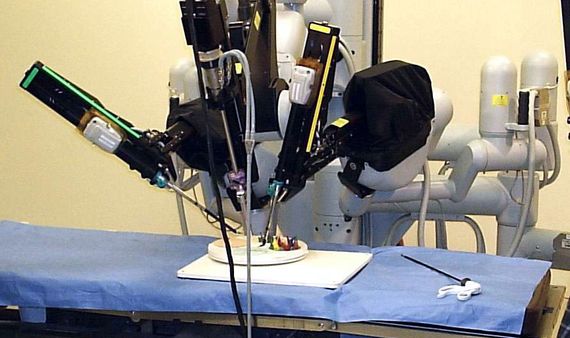AI is continuing to permeate every aspect of human society, and the field of healthcare is no different. In fact, AI is already shaping this incredibly impactful and lucrative sector in such aspects as early-intervention scans, prediction models, and in the monitoring of patients with particular diagnoses.
President Trump recently signed an Executive Order prioritizing the regulation and development of AI, and with this important development firmly in mind, it is time to take a look at the future advantages and disadvantages that will likely play out as AI continues to impact upon the healthcare sector.
Control of costs
Costs in healthcare are already spiraling out of control as costly research practices, equipment and medicines escalate the financial impact upon ordinary people. Yet the way in which costs most greatly manifest in healthcare is through human resources. Quite simply, it is the number of man hours required to fulfill responsibilities that is rapidly leading to an ever-growing crisis in healthcare. One of the most obvious potentials of AI is to help in the completion of daily tasks, increasing efficiency and limiting the amount of time staff members must spend on activities such as administration. AI’s potential in reducing human resource costs is profound across every conceivable industry.
Interpreting results
Interlinked with the point of human activity is the great need for medical professionals to spend time interpreting data generated by scans, X-rays, tests, and a plethora of other medical examination instruments.

“Not only can AI assist, and in some cases completely replace the need for doctors and consultants to spend time casting a keen eye over test results, it can then also greatly contribute in the next stage through the production of subsequent reports,” comments Aida Feldman, a data analyst at Writinity and Researchpapersuk.
There is also the not insignificant element of speech processing replacing the requirement of staff to sit down at a keyboard and type out results, further enhancing human efficiency.
AI and nutrition
An increasingly popular aspect of AI intervention in health is through the reporting and ultimate control of our diet. Algorithms are starting to be used in the identification of such circumstances as glucose spikes, vitamin deficiencies and a host of other diet-related phenomena. The future just may be that what and when we eat is dictated to us by AI, not our bodies.
Robotics
AI is already making its presence felt in the operating theatre through the use of precision-based technology, which greatly assists surgeons in both minimally invasive and open surgeries. Technology companies such as the Mayo Clinic are leading the way in the development of technology which contributes to the precision, control and flexibility of human surgeons. This is profoundly useful intervention, yet many doubt the ability of AI to totally replace the need for human management of surgical procedures.

“Many healthcare specialists that I have spoken to are adamant that AI will augment the practices of skilled professionals, never render them obsolete. It is the complementary nature of AI and human expertise that most excites,” enthuses Suresh Mukharja, a project manager at Draftbeyond and Lastminutewriting.
Mental Health
AI even has the capability to intervene and contribute to the delicate field of mental health, with research suggesting people are more willing to share their deepest-most thoughts with an avatar rather than a person. AI has the capacity to analyze diverse aspects such as speech, breathing patterns and even typing patterns to diagnose mental health problems. Once again the technology will augment human resources, which are profoundly stretched in this aspect of healthcare.
The potential pitfalls of AI in healthcare
Many of the disadvantages of the utilization of AI in healthcare are mirrored in other sectors: privacy, hacking, lack of clarity as to how an algorithm is actually applied, inherent bias. And then there are the ethical quandaries which are already beginning to occur in areas such as genetic engineering. Many of the nightmare scenarios touched upon in works of fiction will fail to play out, of course, but then there are other outcomes which we simply cannot predict.
All in all, it points to an exciting, yet somewhat unpredictable future, but there are a multitude of benefits already taking shape that are revolutionizing our relationship with health.
Oliver Portwood
Lifestyle writer and blogger
Comments on this publication